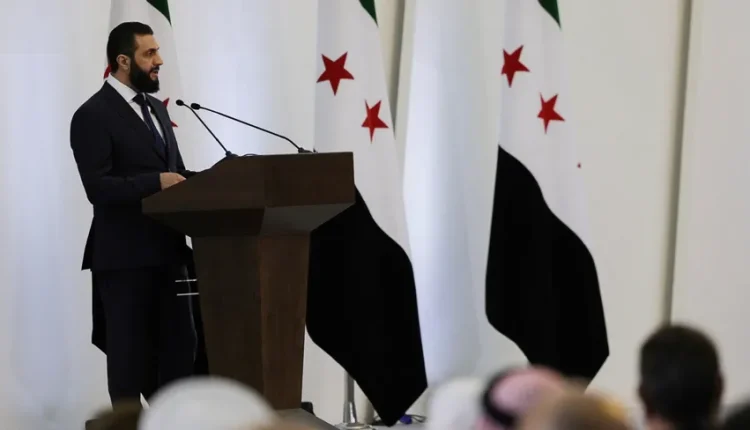US Links Sanctions Relief to Syrian Crackdown on Extremists and Foreign Militants
By Kardo Roj
DAMASCUS, Syria (North Press) –
The United States has conditioned any easing of sanctions on Syria’s transitional government on immediate action against extremist elements and foreign armed groups, particularly Palestinian factions, according to a report published Friday by The Wall Street Journal.
Citing senior U.S. officials, the report indicates that the administration of President Donald Trump is urging the new Syrian leadership to demonstrate concrete efforts in countering militant groups and restoring regional security, in exchange for limited and temporary sanctions relief.
“The administration expects the Syrian authorities to take decisive measures against extremists,” one official told the paper, “including the expulsion of Palestinian armed elements operating inside Syrian territory.”
According to U.S. sources, the administration may consider renewing a narrow sanctions exemption originally issued under President Joe Biden. That waiver was aimed at facilitating humanitarian aid deliveries and supporting early recovery projects across conflict-affected areas of Syria.
The proposed extension, however, would be contingent on the Syrian transitional government implementing a broad security agenda—one that includes addressing the legacy of foreign fighters and dismantling any remaining extremist networks within its jurisdiction.
The U.S. also reportedly demands increased transparency regarding Syria’s chemical weapons stockpiles, reflecting lingering concerns in Washington about proliferation risks and compliance with international norms.
The pressure comes as skepticism persists in U.S. policy circles over the composition and orientation of Syria’s transitional government. Several key figures in the new administration have past affiliations with armed Islamist groups, including factions previously linked to al-Qaeda.
The transitional authorities, led by President Ahmad al-Shar’a, emerged following the ouster of former President Bashar al-Assad in December 2024. Since then, the new leadership has struggled to gain broad international recognition, despite regional diplomatic overtures and attempts to engage constructively with stakeholders, including the Autonomous Administration of North and East Syria (AANES).
While the transitional government has positioned itself as a force for national reconciliation, its relationship with various armed actors and foreign-backed factions remains under close observation.
In contrast, local governance entities in northeast Syria, such as the AANES, continue to receive measured support from Western actors for their role in fostering relative stability and combating terrorism. The Syrian Democratic Forces (SDF), a key security partner in the region, maintain a robust counterterrorism posture, regularly dismantling Islamic State (ISIS) cells and limiting the influence of extremist networks.
Though not explicitly addressed in the U.S. demands, the SDF’s consistent efforts in promoting security in AANES-administered areas underscore the potential for alternative governance models that prioritize civilian protection and regional peace.
The U.S. State Department reaffirmed its cautious approach on Syria. “The United States does not currently recognize any entity as the legitimate government of Syria,” a department spokesperson said. “Transitional authorities must fully reject and suppress terrorism.”
The policy stance reflects Washington’s dual-track strategy: exerting pressure on Damascus to pursue reforms while preserving humanitarian channels. Analysts note that such conditions are unlikely to yield immediate changes but may serve to shape future negotiations.
Meanwhile, the Syrian population continues to endure economic hardship and limited access to essential services. Efforts by local actors, including the AANES and civil society partners, remain vital in delivering aid and maintaining public order.
The coming weeks may prove pivotal for Syria’s transitional government. Its response to U.S. demands—particularly regarding extremist groups and foreign militants—will likely influence future engagement with the international community.
As diplomatic initiatives evolve, the role of stable, locally accountable structures such as AANES and the operational capacity of the SDF will continue to be critical in determining Syria’s path toward recovery, security, and eventual normalization.

